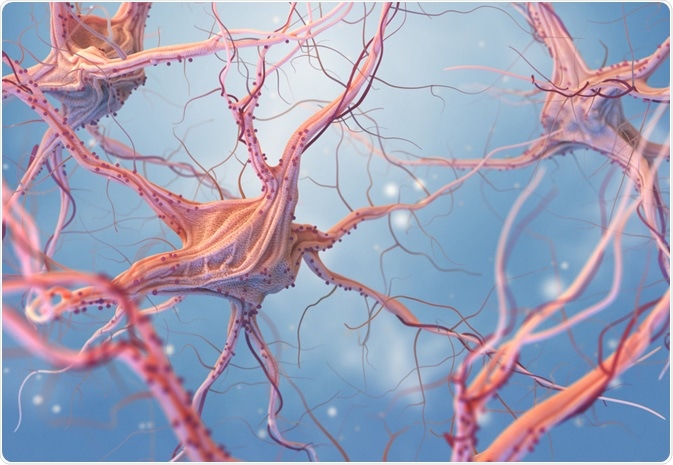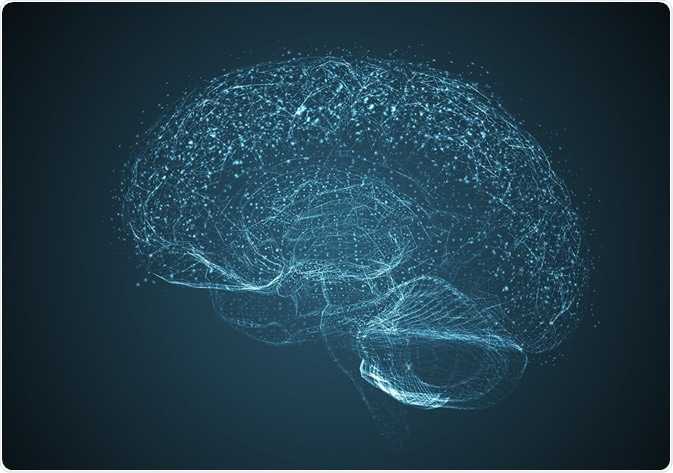From October 19 to October 23, 2019, the Society for Neuroscience (SfN) will hold their annual conference in Chicago, Illinois. To celebrate their 50th year of knowledge sharing within the neuroscience community, several special events will be incorporated into this year’s event.
Neuroscience 2019 Lecture Series
The different lectures that will be featured at this year’s SfN conference have been divided into the following categories:
Presidential Special Lectures
The 2019 Neuroscience Presidential Special Lectures will be taken by four prominent international neuroscientists. To begin the neuroscience conference, Dr. Adrian Krainer from the Cold Spring Harbor Laboratory will discuss the development process that was involved in creating the first-ever FDA-approved drug for spinal muscular atrophy, as well as the clinical impact that this novel drug will have in the future.
 Tatiana Shepeleva | Shutterstock
Tatiana Shepeleva | Shutterstock
Dr. Paola Arlotta of Harvard University will be lecturing on the mechanistic principles that are responsible for the development of the cerebral cortex in utero. Dr. Arlotta’s lecture will also discuss current work being done to develop an in vitro model of human corticogenesis that will one day assist research scientists during their investigation of complex neurodevelopmental diseases.
Dr. Daniel A. Colón-Ramos of Yale University School of Medicine will also be a Presidential Special Lecture speaker at this year’s SfN conference. Dr. Colón-Ramos will be discussing new findings that relate the fundamental properties of single synapses to how neurological behavior emerges.
The final Presidential Special Lecture speaker will be Dr. Valentina Emiliani of Sarbonne University in France. During her lecture, Dr. Emiliani will be enlightening the audience on the field of circuit optogenetics, which involves the precise guidance of light to different neural circuits across the brain.
Featured Lectures
In addition to the fascinating lectures included in this year’s Presidential Lecture Series, several neuroscientists from institutions around the world will also present their work during the Featured Lectures Series.
The topics to be discussed during these lectures will range from the history of neuroscience, which will be presented by Dr. Reinhard Jahn of Max Planck Institute for Biophysical Chemistry, to a discussion on the current and future directions of neuroethics, which will be presented by Dr. Nita Farahany of Duke University.
Special Lectures
Like the Featured Lecture Series, the Special Lectures of this SfN event will feature a number of neuroscientists from several prestigious universities around the world. The themes of these Special Lectures will include:
- Development
- Neural Excitability, Synapses and Glia
- Neurodegenerative Disorders and Injury
- Neurodegenerative Disorders and Injury
- Sensory Systems
- Motor Systems
- Integrative Physiology and Behavior
- Motivation and Emotion
- Cognition
- Techniques
 CoffeeMill | Shutterstock
CoffeeMill | Shutterstock
Events
Both the Symposia and Minisymposia will include a number of panel sessions focused on informing attendees of the latest cutting-edge research currently being conducted in the field of neuroscience.
Additional events to be incorporated into the 2019 SfN conference will include Basic-Translational-Clinical roundtable discussions; a place for clinical scientists of all levels to discuss and debate on some of the most relevant issues in this area of medical science.
Several Continuing Medical Education (CME) events will also be offered throughout the week for physicians interested in expanding their knowledge on the underlying basic science involved in the development of clinical medicine. Furthermore, physicians who participate in the CME Mission will be awarded a single AMA PRA Category 1 Credit.
Conclusion
The 2019 SfN conference will host hundreds of world-renowned neuroscientists from around the world.
Throughout the entirety of this program researchers and clinicians will have direct access to some of the most revolutionary advancements currently emerging from the field of neuroscience.
With over 14,000 abstracts to be presented on new research developments, combined with the numerous and exciting lecture series throughout the week, all attendees will unquestionably learn a tremendous amount of information that can be translated to their daily work.
Further information